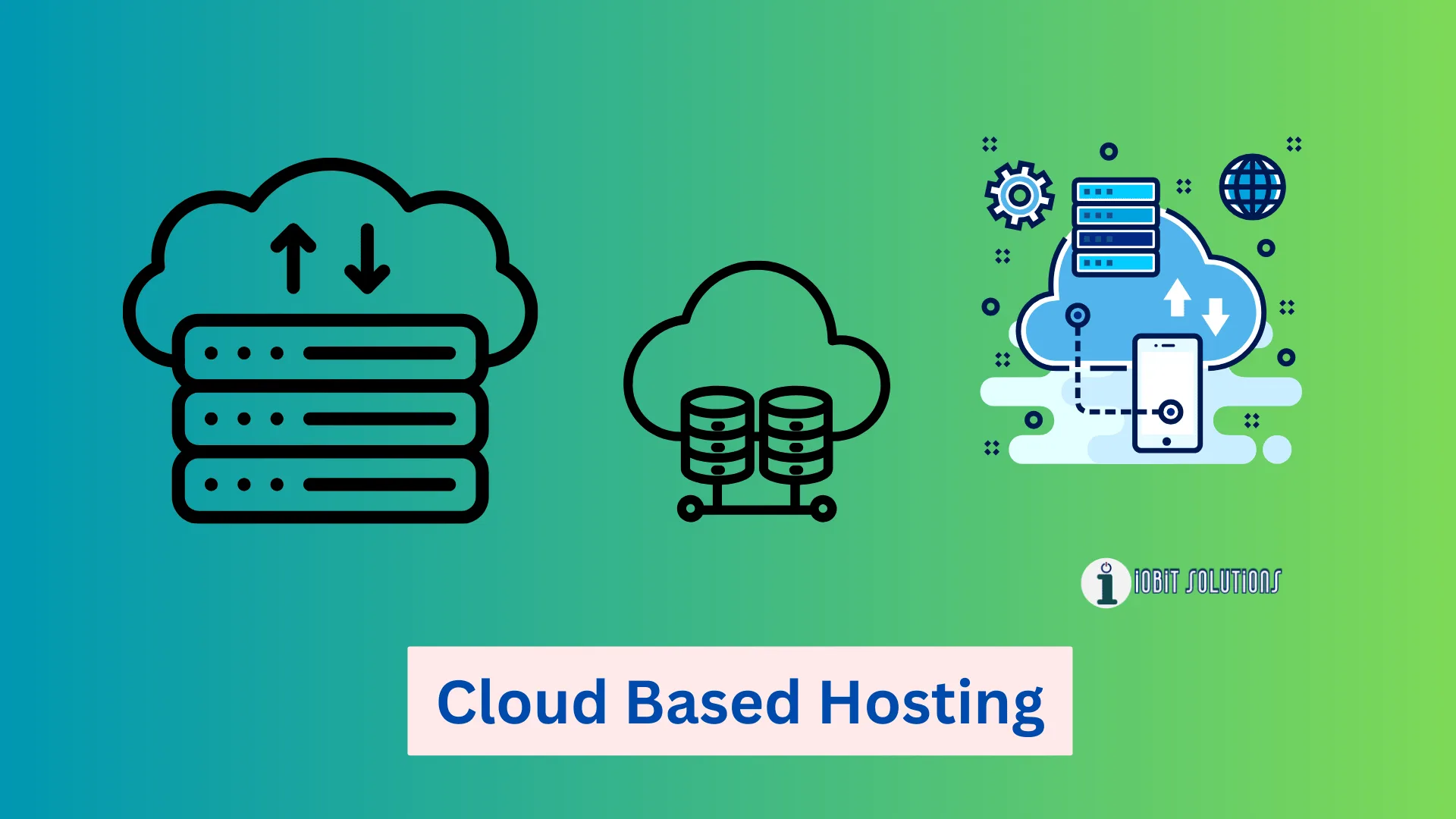In recent years, cloud-based hosting has witnessed an exponential rise in popularity, and for good reason. As businesses increasingly rely on their online presence to attract and retain customers, the need for a robust, scalable, and cost-efficient hosting solution has never been greater. Cloud-based hosting has transformed the way organizations manage their online resources, offering a flexible and reliable alternative to traditional hosting methods. This blog will delve into the intricacies of cloud-based hosting, its benefits, and best practices for managing cloud servers.
What is Cloud-Based Hosting?
Definition of Cloud-Based Hosting
At its core, cloud-based hosting is a type of web hosting service that utilizes a network of remote servers to store, manage, and process data. Unlike traditional hosting, which relies on a single server or a small group of servers, cloud hosting distributes the workload across multiple servers. This networked approach ensures greater reliability, scalability, and efficiency. It essentially allows businesses to tap into a vast pool of computing resources on an as-needed basis, making it a flexible and powerful solution for modern web hosting needs.
How It Works
The technology behind cloud hosting involves virtualization, which creates a virtual layer over physical servers, enabling multiple virtual servers to run on a single physical server. This setup allows for the seamless allocation and reallocation of resources based on demand. Common cloud service providers include Amazon Web Services (AWS), Google Cloud Platform, and Microsoft Azure. These providers offer a range of services, from basic cloud storage to advanced computing capabilities, making it easier for businesses to scale their operations without investing heavily in physical infrastructure.
How Does Cloud-Based Hosting Differ from Traditional Hosting Methods?
Traditional Hosting Methods Explained
Traditional hosting methods can be categorized into three main types: shared hosting, dedicated hosting, and Virtual Private Server (VPS) hosting. Shared hosting involves multiple websites sharing the same server resources, making it a cost-effective but less reliable option. Dedicated hosting provides a single server dedicated to one website, offering better performance and security but at a higher cost. VPS hosting strikes a balance between the two, providing a virtualized environment within a shared server, offering more control and resources than shared hosting but not as much as dedicated hosting.
Key Differences Between Traditional and Cloud-Based Hosting
Scalability: One of the most significant differences between traditional and cloud-based hosting is scalability. In traditional hosting, scaling resources usually involves manual intervention, such as upgrading to a larger server. Cloud-based hosting, on the other hand, allows for automatic resource allocation, enabling businesses to scale up or down based on real-time demand.
Reliability: Traditional hosting relies on a single server, which can be a single point of failure. If the server goes down, so does your website. Cloud hosting offers redundancy by distributing data across multiple servers, ensuring higher uptime and reliability. If one server fails, another can take over, minimizing downtime.
Cost: Traditional hosting typically involves a fixed cost, irrespective of resource usage. This can lead to inefficiencies, as you might pay for resources you don’t use. Cloud hosting employs a pay-as-you-go model, allowing businesses to pay only for the resources they actually use. This can result in significant cost savings, especially for businesses with fluctuating resource needs.
Use Case Scenarios
While cloud-based hosting offers numerous advantages, there are scenarios where traditional hosting might be preferable. For small websites with minimal traffic, shared hosting can be a cost-effective solution. Businesses requiring high levels of customization and control might opt for dedicated hosting. VPS hosting is suitable for medium-sized businesses needing more resources and control without the high costs of a dedicated server. However, for businesses with variable traffic, global reach, and the need for high reliability, cloud-based hosting is often the ideal choice.
Benefits of Using Cloud-Based Hosting
Scalability and Flexibility
One of the most compelling benefits of cloud-based hosting is its scalability and flexibility. Whether you’re experiencing a sudden surge in traffic or need to scale down during off-peak times, cloud hosting allows you to adjust resources in real-time. This elasticity ensures that you only use (and pay for) the resources you need, making it a highly efficient solution.
Cost Efficiency
Cloud-based hosting operates on a pay-as-you-go model, meaning you only pay for the resources you use. This can lead to substantial cost savings, as there’s no need for significant upfront investments in hardware. Additionally, you can avoid the ongoing maintenance costs associated with traditional hosting, further reducing your overall expenses.
Performance and Speed
Because cloud hosting leverages a network of servers, it can offer faster load times and better overall performance. Data is distributed across multiple servers, reducing the risk of bottlenecks and ensuring a smoother user experience. This distributed nature also allows for better handling of high traffic volumes, making it ideal for businesses with fluctuating demand.
Security
Major cloud service providers invest heavily in security measures and compliance standards, offering a level of protection that many businesses would find challenging to achieve on their own. Features such as encryption, firewalls, and advanced monitoring tools help safeguard your data. Additionally, cloud providers often comply with industry standards and regulations, providing an added layer of security and peace of mind.
Disaster Recovery
Data loss can be catastrophic for any business. Cloud-based hosting offers built-in backup and recovery options, ensuring that your data is safe and easily recoverable in the event of a disaster. This resilience is a significant advantage over traditional hosting methods, where backup and recovery processes can be more cumbersome and less reliable.
Global Reach
With cloud-based hosting, you can serve a global audience with minimal latency. Cloud providers have data centers located around the world, allowing you to host your website closer to your users. This geographical distribution reduces load times and enhances the user experience, making your website accessible and responsive, no matter where your audience is located.
Best Practices for Managing Cloud Servers
Regular Monitoring and Maintenance
Maintaining the health and performance of your cloud servers is crucial for ensuring optimal operation. Regular monitoring can help you identify and resolve issues before they escalate. Utilize monitoring tools provided by your cloud service provider to keep an eye on resource usage, performance metrics, and potential vulnerabilities.
Implementing Strong Security Measures
Securing your cloud environment is paramount. Best practices include setting up firewalls, enabling encryption for data at rest and in transit, and implementing robust access controls. Regularly update your software and apply security patches to protect against vulnerabilities. Additionally, consider using multi-factor authentication to enhance security.
Optimizing Costs
While cloud hosting offers cost efficiency, it’s essential to manage your expenses proactively. Set budgets and monitor your spending to avoid unexpected costs. Take advantage of reserved instances or long-term contracts offered by cloud providers for additional savings. Regularly review your resource usage to ensure you’re not over-provisioning and paying for unused resources.
Backup Strategies
Implementing a robust backup strategy is critical for data protection. Ensure that regular backups are scheduled and stored securely. Test your backup and recovery processes periodically to verify that you can restore your data quickly in the event of a failure. Consider using automated backup solutions provided by your cloud service provider for added convenience.
Staying Updated with Provider Offerings
Cloud service providers continually innovate and introduce new features and services. Staying informed about these updates can help you leverage new tools and improve your cloud infrastructure. Subscribe to your provider’s newsletters, attend webinars, and participate in user communities to stay abreast of the latest developments.
Conclusion
Cloud-based hosting has revolutionized the way businesses manage their online presence. Its scalability, cost efficiency, performance, security, and global reach make it an attractive option for organizations of all sizes. By understanding the benefits and best practices for managing cloud servers, you can optimize your hosting strategy and ensure your website performs at its best.
If you’re considering switching to cloud-based hosting or looking to optimize your current setup, now is the perfect time to explore the possibilities. Feel free to share your thoughts or experiences in the comments section below. Let’s continue the discussion and help each other make the most of cloud-based hosting.

